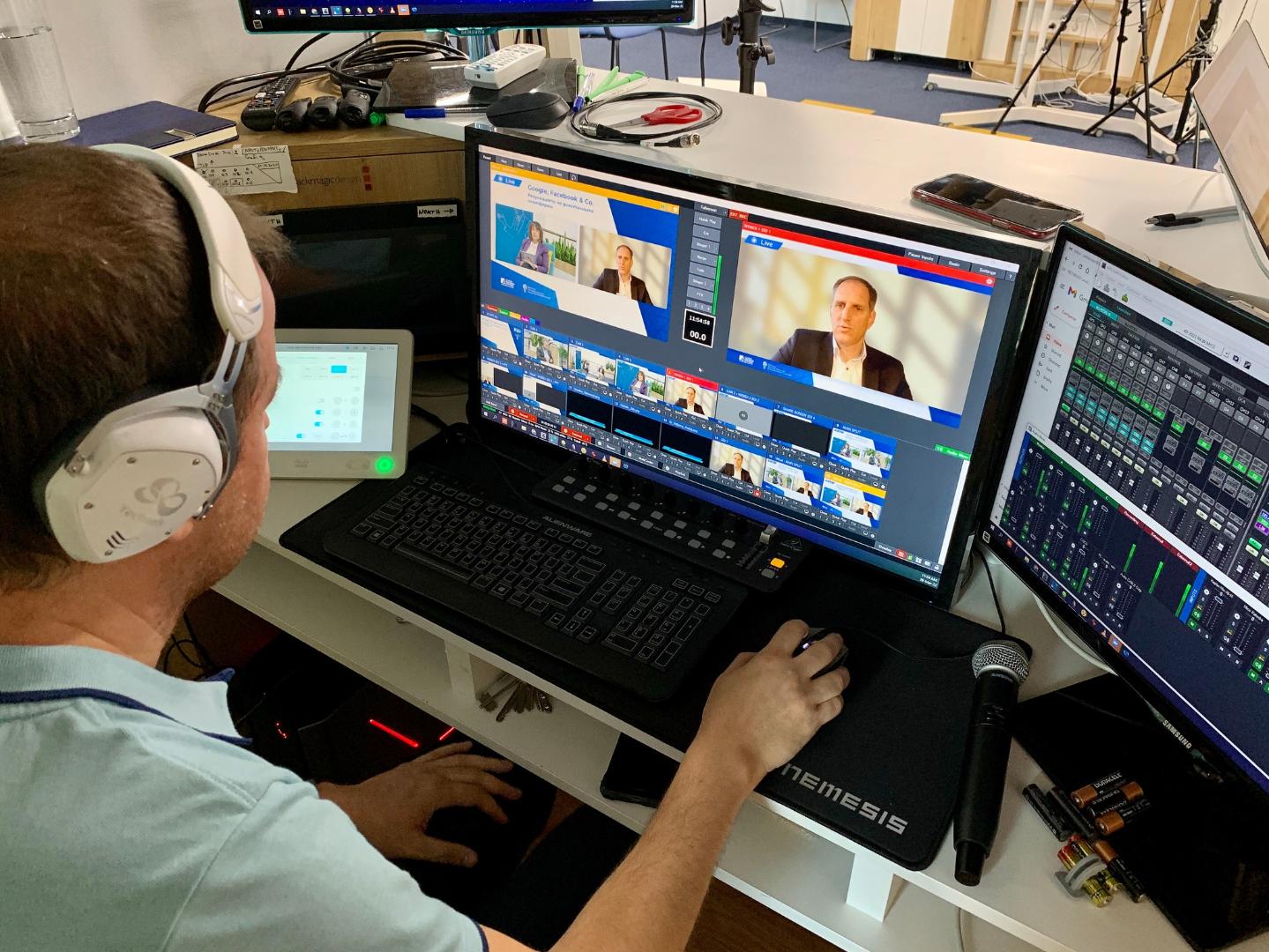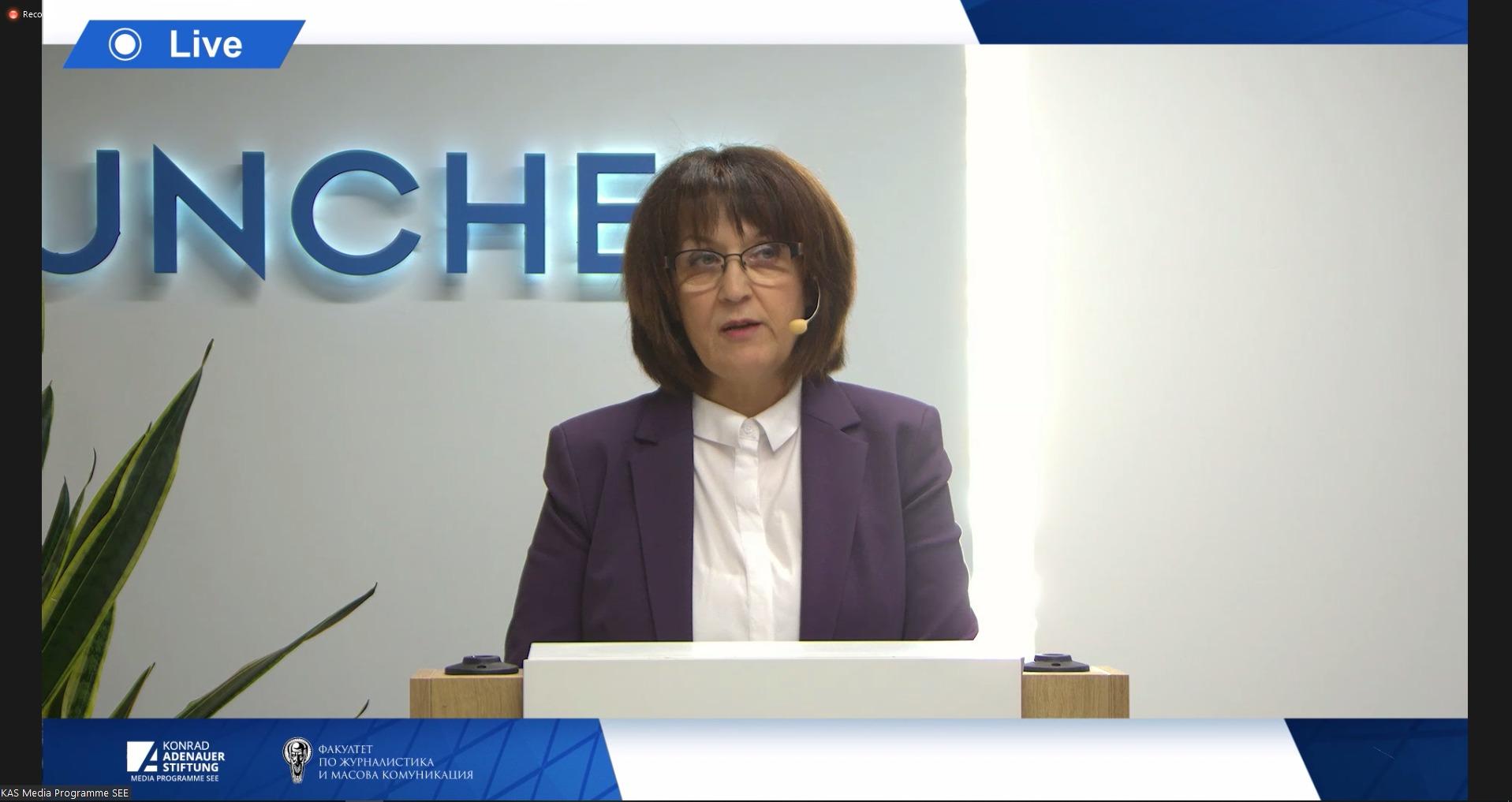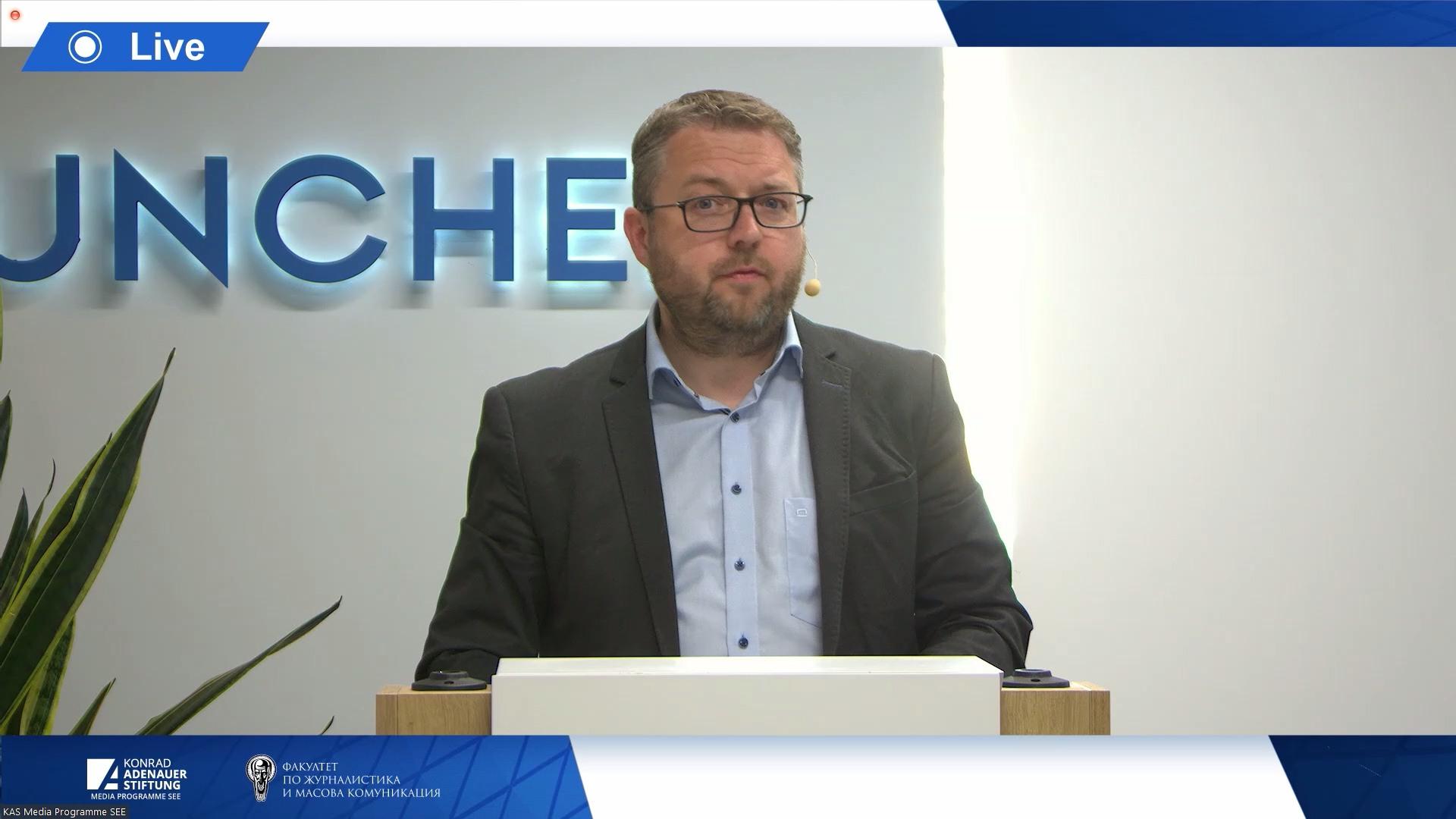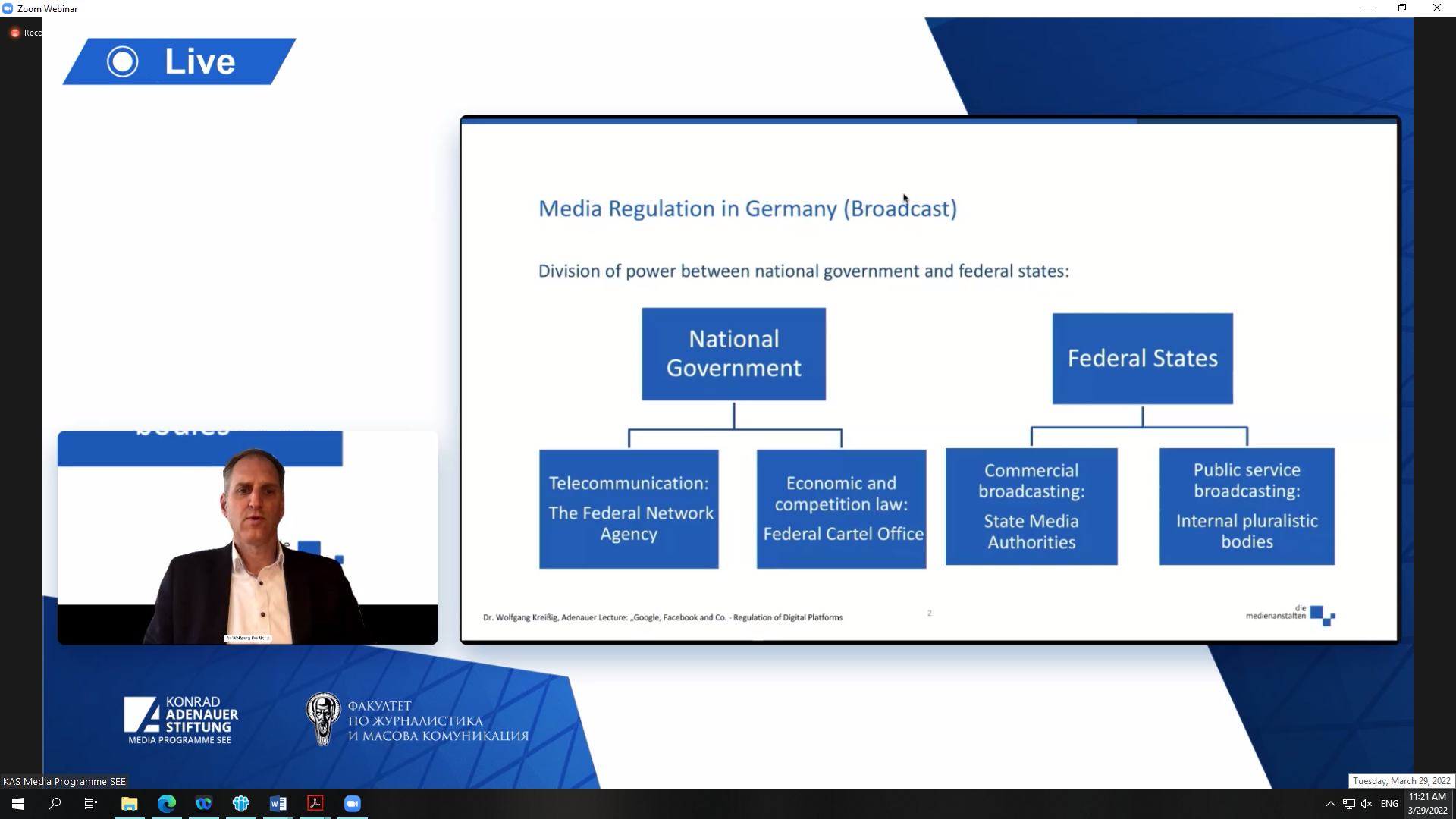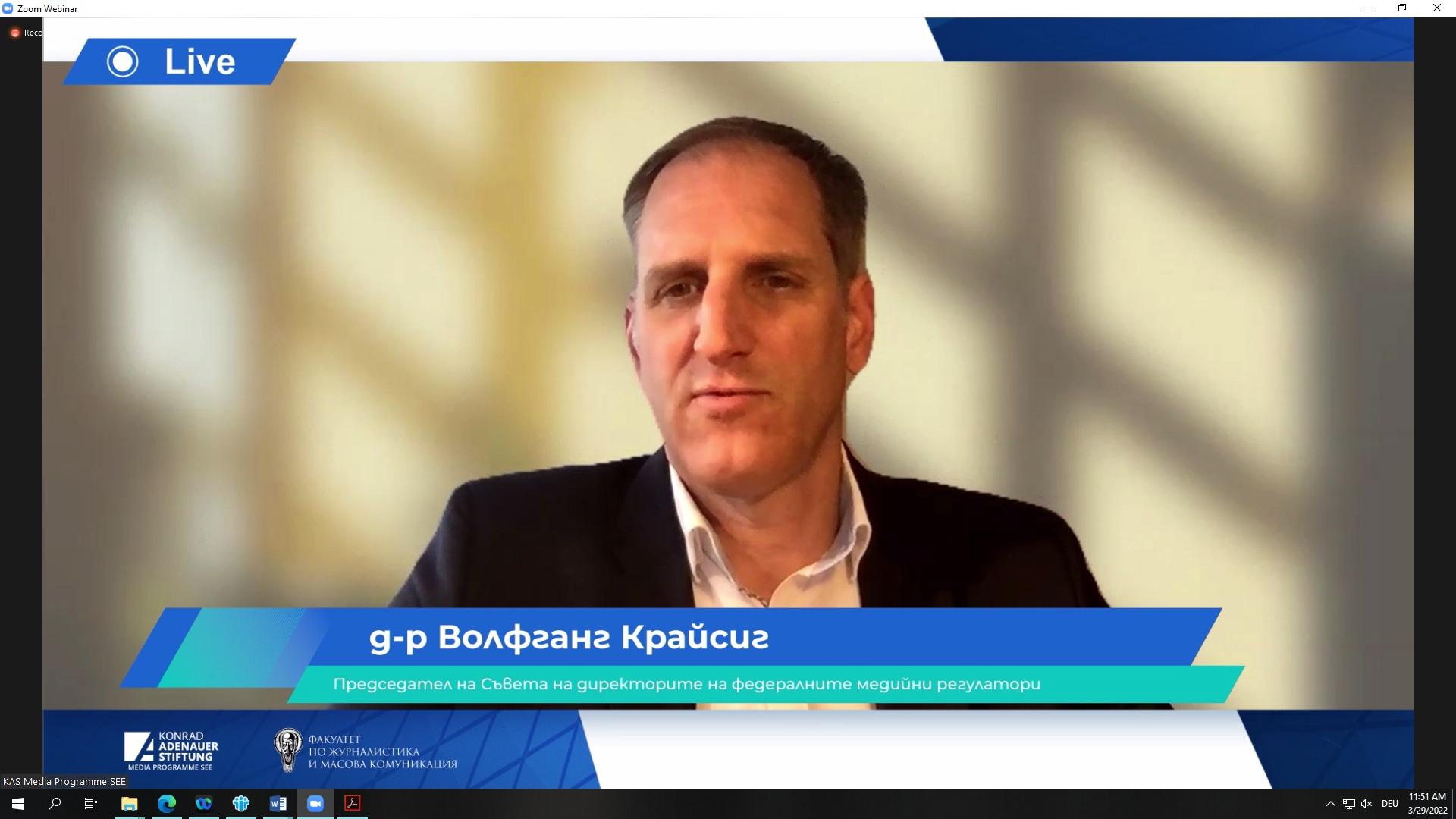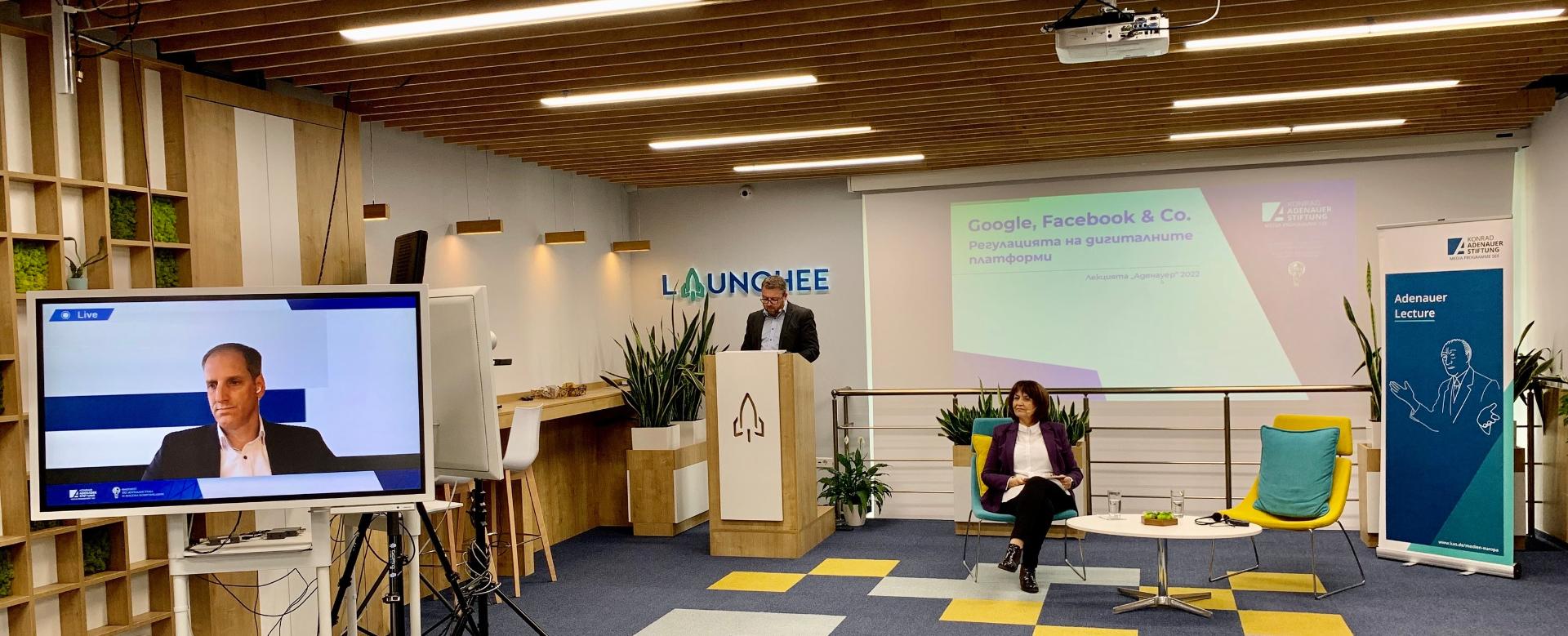Adenauer Lecture: Facebook, Google and Co – The Regulation of Digital Platforms - Media Programme Southeast Europe
In her opening address, Prof. Dr. Vesselina Valkanova, Dean of the Faculty of Journalism and Mass Communication at Sofia University "St. Kliment Ohridski", referred to the well-known author Noam Chomsky: "If we plead for freedom of expression, it means that we must also accept the views that we despise." However, the rise of digital platforms led to the establishment of new channels used for the spread of propaganda and false information – none of which being worthy of protection in terms of civil liberties. Therefore, clear standards regarding where and when corresponding regulations for internet providers are needed, are now even more important.
Hendrik Sittig, Head of the KAS Media Programme South East Europe, subsequently emphasised the value of reliable information, especially in periods of crisis. The more frequently false reports are spread, the more difficult the situation becomes for the audience. Even though disinformation is not a new occurrence at all, it has gained a new impact via social networks. "People only read, hear or see what they are attracted to. Other opinions are no longer assimilated and accepted. This is dangerous for a democracy and destroys our social foundation," said Sittig. However, social media also opened up a multitude of new opportunities as well: "It is therefore a constant process of weighing up the positive and negative aspects, the opportunities and the risks."
This tightrope act was also addressed by Dr. Wolfgang Kreißig in his subsequent presentation, in which he explained the situation in Germany: "Due to a changing behaviour when it comes to media usage and the dynamic digital developments, Germany has decided to take a pioneering role." Through the Interstate Media Treaty, which was enacted in November 2020, large internet platforms were regulated for the first time in Europe under the aspect of ensuring diversity. The two main mechanisms involved were transparency and non-discrimination: on the one hand, platform operators must reveal the criteria they use to suggest new content to users. On the other hand, systematic discrimination against journalistic and editorial content is inadmissible. Because freedom of expression is a value worth protecting, all of this ultimately depends on wise legislation, which cannot rely on bans alone. “That is why I am firmly convinced: Ensuring diversity, reliable information, an open democratic discourse, everything that constitutes democracy – all that requires a conjunction of balanced regulation and a sufficient degree of media literacy among citizens. Only this way we will be able to achieve our media regulation goals in the future,” said Kreißig. The event concluded in a lively discussion moderated by Prof. Dr. Valkanova. Many of the 120 participants contributed with questions.



